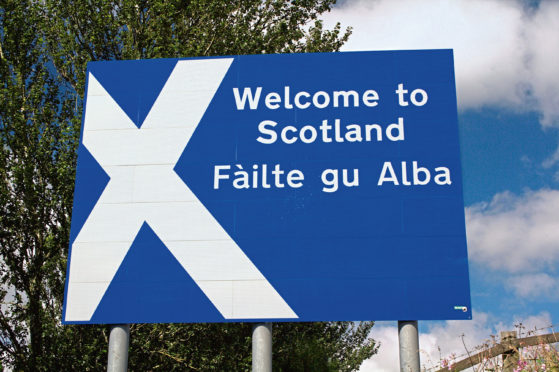“Morag has a fat husband”. It’s a phrase in the Gaelic Duolingo course, an online language teaching app. My wife, Morag, delights in this one. I’m not so sure.
Still, Latin declensions used to be taught by repeating “I am a table, you are a table” and so on, and generations remember “le plume de ma tante” when all other French is gone.
Gaelic is having a moment. It is very popular on Duolingo, and a new Gaelic-medium secondary school is opening in Edinburgh after the success of one in Glasgow.
On the downside there are fewer daily speakers than ever, academics predict Gaeldom is doomed and the public body meant to promote it, Bord na Gaidhlig, is thought useless.
In truth, Gaelic is having the same moment it’s enjoyed for decades: Gloom and glints of hope.
We think of the cities as home to radicalism, but it is the Highlands and islands that have sparked the most courageous thinking in the last 50 years. This remains true.
Highland MSP Kate Forbes reportedly suggests housing in the north west and islands might be reserved for Gaelic speakers.
The estimable online magazine Bella Caledonia has been running a series of angry articles defining the loss of Gaelic as a kind of social cleansing.
Discussions of the issue are hindered by the visceral hatred of the language and culture. Quite why some Scots are so anti-Gaelic is baffling.
They dress this up about public-sector budgets and dead languages, but that has never explained the vitriol. In the orgy of public spending that is Scotland’s £35 billion package for devolved matters, the Gaelic budget is barely a crumb.
The idea that if this was fed to a different mouth it would have a big effect is misguided. The habit of looking for savings from such minor budgets is deeply ingrained but pointless.
As to despising a dead or dying language, that seems a bit odd. Why care? Do these people run around the British Museum railing at the Rosetta Stone?
The pro-Gaelic camp say the hatred stems from ignorance/insecurity/the clearances/colonisation and all those things lumped into the Scottish cringe.
That seems too lazy and tired an excuse.
I just think it’s one of those pointless divisions which Scots get agitated about in order to check their pulse.
Away from the knee-jerk prejudices, it’s clear we have a problem – but we can’t agree what it is. For some it’s the daily use of the language. For others it’s the culture. This leaks into matters of land ownership and the cost of housing.
“Mairi is stealing underpants”. Another phrase from Duolingo.
The fuzzy nature of the problem leads to a fuzzy policy response.
There are Gaelic/English signs across Scotland, and a government agency. To Holyrood, that looks like action. Yet it’s clearly not enough.
To the concern that the daily use of Gaelic is dying, that seems both true and unstoppable.
Globally, English and Mandarin are crushing all in their way. These are the languages of power and popular culture. In this regard, Gaelic is just another small tongue.
Speaking Irish is a requirement of the Irish civil service, but a recent survey found only one in 500 officials were fluent. Learning the native language is compulsory in Ireland. Yet it is dying out.
The same forces which destroy minority languages – digital media – also ensure no language can ever die.
Pronunciation, grammar and vocabulary are secured on databases. We will never know how to talk Sanskrit, but Gaelic can always be revived.
The issue needs a sharper focus. This is not entirely a matter about language, but the ideas and identity the language carries. For a language to live, the people must have a living.
The big issue for the north and west is land. It is very expensive. This means people born in Gaelic-speaking areas find it very difficult to buy or rent accommodation.
This has the effect of economically favouring incomers from richer areas. Ironically, many of those settlers are looking for an authentic experience but, by arriving, they dilute what they seek. It’s not their fault, that’s a liberal economy for you.
But it is the fault of the Scottish Government for allowing people to feel so vulnerable.
Much as it is morally wrong to house Londoners in accommodation with inflammable cladding, so it is wrong not to provide Highlanders with any homes at all.
The Covid property boom outside London is making this a lot worse. It is time to act.
Allow communities to draw up lists of who needs housing. Then compulsory purchase the land and build the houses. Nice ones, in good spots.
Give Highlanders what they fundamentally want: A home in their homeland. Then leave them to speak how they wish, and watch as they profit from a limitless supply of tourist pounds and green energy pence.
“My buttocks are so lovely” is another Duolingo phrase. At no point does the app prompt “We just want to live where we were born”, because this seems too plaintive. But it’s a basic human right. The Scottish Government could have solved this years ago.

